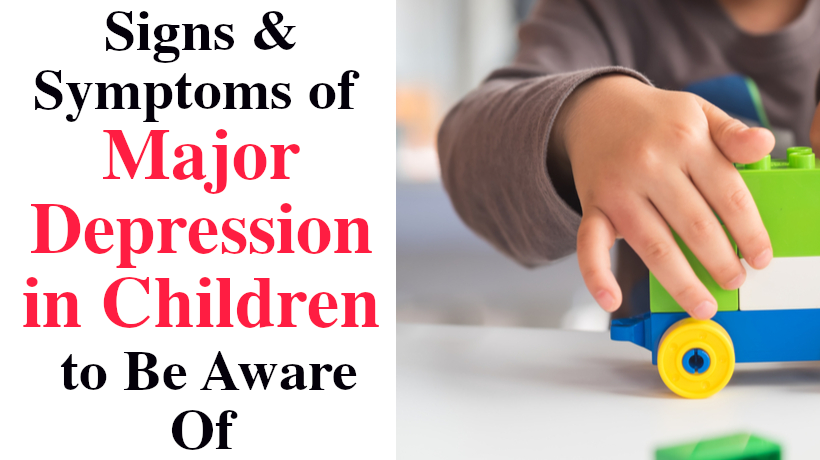Depression in adults is common and difficult. Children can also have major depression, but unlike adults, they may not understand what is going on therefore they are unlikely to be vocal about it. It is important to know the signs of major depression in children so we can be aware and get them the help they need.
The National Institute of Mental Health, part of the National Institutes of Health claims that depression onset is occurring earlier in life today than in past decades. Early-onset depression often persists, recurs, and continues into adulthood. “Depression in youth may also predict more severe illness in adulthood. There is an increased incidence of depression in children whose parents experience depression.”
Here is what to look out for:
Symptoms
As noted by Stanford Children’s Health:
- Persistent feelings of sadness
- Feeling hopeless or helpless
- Having low self-esteem
- Feeling inadequate
- Excessive guilt
- Feelings of wanting to die
- Loss of interest in usual activities or activities once enjoyed
- Difficulty with relationships
- Sleep disturbances (for example, insomnia, hypersomnia)
- Changes in appetite or weight
- Decreased energy
- Difficulty concentrating
- A decrease in the ability to make decisions
- Suicidal thoughts or attempts
- Frequent physical complaints (for example, headache, stomachache, fatigue)
- Running away or threats of running away from home
- Hypersensitivity to failure or rejection
- Irritability, hostility, aggression
Risk Factors:
Children may have been likely to experience one of these early on:
- Family history of depression (especially if a parent experienced depression as a child or adolescent)
- Excessive stress
- Abuse or neglect
- Trauma (physical and/or emotional)
- Other psychiatric disorders
- Loss of a parent, caregiver, or other loved one
- Cigarette smoking
- Loss of a relationship (for example, moving away, loss of boyfriend or girlfriend)
- Other chronic illnesses (for example, diabetes)
- Other developmental, learning, or conduct disorders
Diagnosis
If you are suspicious that your child or a child you know is depressed, a child psychiatrist or other mental health professional should be informed. These professionals usually diagnose major depression following a comprehensive psychiatric evaluation. An evaluation of the child’s family, when possible, in addition to the information provided by teachers and care providers may also be helpful in making a diagnosis.
Source:



